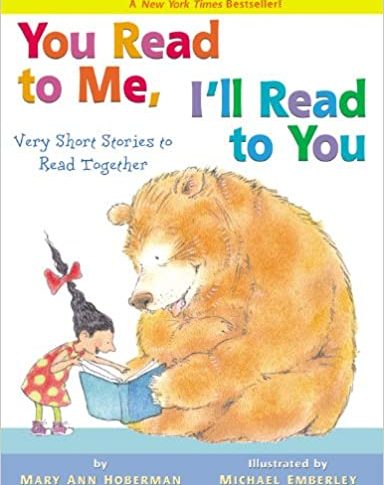How to Really Love Your Angry Child
[amazon_image id=”0781439140″ link=”true” target=”_blank” size=”medium” ]How to Really Love Your Angry Child[/amazon_image]
This is an amazing book and another must read for every parent. I have over four pages of notes from this book. I originally was intrigued when I read
. One of my sons, at the time, was having a very difficult time handling his anger without lashing out verbally at everyone. He would go from “Sweet to Heat” in less than a blink of an eye. I got to the point where I felt so helpless and didn’t know where to turn. I read this book, looked up things online and we put him in counseling for a few months. All of this has helped us all! 🙂This book can kind of sting a bit because unfortunately, how our children handle anger is learned. Most of it stemming from the fact on weather or not they truly feel loved. I know a lot of parents get very defensive when I bring this up, and I don’t blame them. I know that practically every parent loves their child/ren more than anything else in the world. However, just because that is the case, doesn’t mean that our children know and FEEL that! That’s one reason why I do the Intentional Parenting Challenge.
Please pick up this book and read it, it is amazing and really worth the time and effort to read it. It is 184 pages long, most of the chapters are around 15 pages long, so it’s not too hard to read a chapter a day!
Chapters
Anger Comes Home (A must read chapter)
An Atmosphere of Anger
A House on Fire
Love without Limits
Anger Unmasked
Passive, Yet Aggressive
The Lower Rungs of the Ladder
Starting with the Face in the Mirror
Basic Training
75/25: How Children Face Authority
Special Children, Special Problems
A Final Word to Parents
Quotes
“The difficult truth is that the greatest source of anger in children is a deep-rooted belief that they are not loved. I believe most parents truly love their children. The problem comes in their ability to transmit their heartfelt love to the heart of the child. The message is not coming through.” (13-14) (mainly because children are behavioral, not verbal like adults)!
“… if your children do not feel loved, they cannot grow to be the best persons they are capable of becoming. They will carry within them a sense of this failure, and they will feel continuing anger toward their parents. This anger interferes with a child’s basic development and later with adults behavior. … the single most important factor in handling anger is a person’s self-concept.” (14-15)
“Two of the greatest gifts you can give your children are to love them unconditionally and to teach them to manage their anger in ever more mature ways.” (20)
“Here is the key insight: You, the parent, determine the atmosphere of your home. You set the pace. You build the foundation of love and acceptance. You are the trainer in anger management.” (33)
“Perception often trumps reality…” (39)
“Children merely reflect the love they receive.” (52)
“Reminders: It is normal for your child to express anger verbally to you, even if… It is unpleasant to deal with the anger, because… The anger is the only opportunity you’ll have for teaching how to control it.” (58)
“When you are faced with an angry child, you have two obligations- to accept your child’s anger, ugly as it is, and to control your own anger, ugly as it may want to be.” (92)
“Anger is not about respect, but is a separate issue. We want to teach our children to say what they mean, to express themselves honestly, and to live with integrity.” (94)
“It is crucial to remember that children cannot tolerate parental anger because they have no defenses against it. Dumping any anger on them is harmful, but dumping excess rage from other sources can be truly destructive.” (104)
“… the greatest portion of your influence is the way you manage your anger.” (109)
“What is the best way to handle anger? Three things: express it verbally, express it pleasantly, and resolve the anger with those to whom it was directed.” (177)
This is a truly amazingly wonderful book and I hope you take the time to read it. It can change your relationship with your children for the better! One idea I found online, that I really love, but I feel like my child is still a bit young to try it. However, I’ve made a mental note to maybe try in the future. One suggestion was to get an old piece of fence board and some thick nails (the thicker, the better). When your child gets angry, send them outside with the materials and instruct them to “take their anger out” on the fence board by hammering the nails into the board. Then when your child has calmed down, (and hopefully apologizes), have them do out and remove the nails from the fence board. Explain to them that although they apologized (in a sense “taking back” their anger) the anger will forever leave marks/holes in those at which the anger was directed. I thought this idea was brilliant!
Read my review of How To Really Love Your Child.
This poem was included in the book and I love it:
Children Learn What They Live
By Dorothy Law Nolte, Ph.D.
If children live with criticism, they learn to condemn.
If children live with hostility, they learn to fight.
If children live with fear, they learn to be apprehensive.
If children live with pity, they learn to feel sorry for themselves.
If children live with ridicule, they learn to feel shy.
If children live with jealousy, they learn to feel envy.
If children live with shame, they learn to feel guilty.
If children live with encouragement, they learn confidence.
If children live with tolerance, they learn patience.
If children live with praise, they learn appreciation.
If children live with acceptance, they learn to love.
If children live with approval, they learn to like themselves.
If children live with recognition, they learn it is good to have a goal.
If children live with sharing, they learn generosity.
If children live with honesty, they learn truthfulness.
If children live with fairness, they learn justice.
If children live with kindness and consideration, they learn respect.
If children live with security, they learn to have faith in themselves and in those about them.
If children live with friendliness, they learn the world is a nice place in which to live.
Copyright © 1972 by Dorothy Law Nolte
[amazon_enhanced asin=”0781439140″ /] [amazon_enhanced asin=”0781439124″ /] [amazon_enhanced asin=”B008VBQ1D0″ /]
[amazon_enhanced asin=”0849945410″ /] [amazon_enhanced asin=”0802468519″ /]





-
-
2 years
Tagged books, Christmas, decluttering